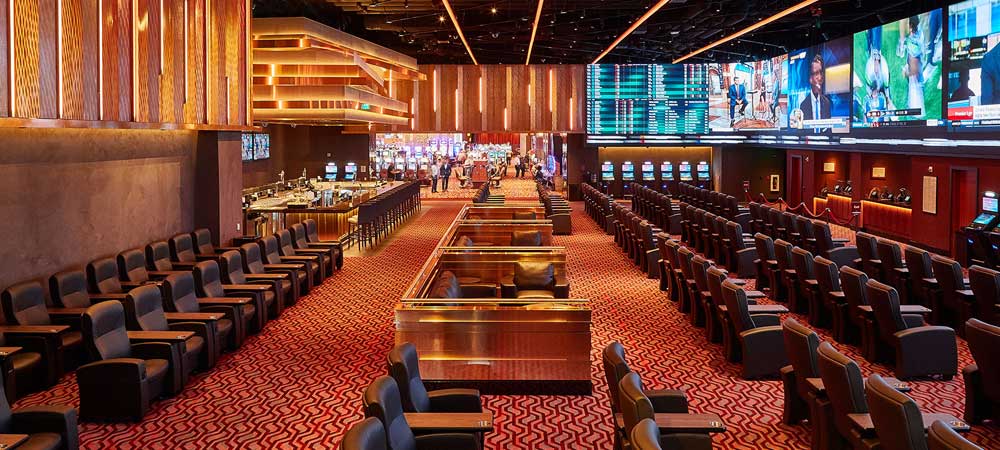Pennsylvania is one of the first states to approve and regulate legal sports betting in the wake of the Supreme Court overturn of the Professional and Amateur Sports Protection Act (PASPA, 1992). However, it’s been lagging behind its contemporaries when it comes to actually offering sports wagering venues to the public. No PA casino or racino venue has even applied for a state sports betting license going on almost 3 months since PASPA’s elimination. That said, one venue in PA, Parx Casino and Racing, has become the first PA property to actually make any move at all in the sports betting space, officially partnering with British-based online gambling company GAN in a bid to build out their sportsbook’s technological platform. But still, like all the other gambling locales in PA, Parx has not yet applied for a state license to bring this platform to market.
Why? Well, it’s not much of a mystery, actually. This unanimous hesitance is due to the fact that the state government’s requirements for sportsbooks to operate within PA borders borders on the insane. To wit: Whereas most states who have already broached the issue of sportsbook licensing fees have settled on figures in the $100,000 to $250,000 range (typically for five-year licenses), PA requires a payment of $10 million for any book looking to open up shop. That represents about two years of average sportsbook profit, and Pennsylvania wants this upfront.
But while that’s a big number, it’s actually not the biggest reason that casino operators in PA are reticent to enter the sports betting space. No, the real reason that Pennsylvania sports betting is taking so long to get going is that the PA state government is taxing sportsbook revenue at 36%, the highest rate of sports betting taxation anywhere in the entire world! For perspective, most of the first wave of new sports betting states are taxing sportsbook revenue at between 8% and 12%, which is considered to be the high end of sustainability for the industry. Nevada, where sports betting has been reasonably (but not outrageously) profitable over the years, taxes the practice at just under 7%. Note, of course, that these state rates are in addition to the federal sports betting taxation rate of 0.25% of the handle, which equates to about 5% of the total revenue of an average sportsbook. With this in mind, the effective total taxation rate on Pennsylvania sportsbook revenue is a mind-blowingly ridiculous 41%. Why on earth would anyone even bother?
To make money, of course, even if the revenue stream is gimped almost to the point of unprofitability. The risk here for PA sportsbooks is two-fold, and it explains why many of these companies – particularly those that have casino chains and operate in several states – are balking at the current terms of PA sports wagering.
First, if Pennsylvania’s scheme works – that is, if sportsbooks actually agree to these terms and open up shop despite the significant comparative cost of doing business in the state – then these books could price themselves out of profit elsewhere by acquiescing to PA’s terms. That’s because many of these brands have properties in other states that have not yet passed sports betting legislation. If they go all-in despite PA’s huge barrier to entry, then they will simply prove to other states considering new legislation that such high rates are the way to go. Thus, these gambling companies may become bound by PA-like fees and licensing schemes in those states.
Secondly, of course, the flip-side of that coin is also in play: If PA’s established gambling houses don’t play ball with the state’s rates, they stand to lose significant mindshare in the betting space to other brands that “bite the bullet.” Parx, being an independent casino/racino venue limited to Pennsylvania operation, has no skin in the wider game re setting precedents for other states’ gambling industries. They’ve made the decision to take profit where they can get it, and they’re going all in with GAN to put together a compelling, first-rate product. Perhaps Parx is waiting for the state to reconsider its taxation of the industry and bring the mandated fees down out of such rarefied air. Or perhaps they’ll gladly eat the $10 million cost of entry and effective 41% tax rate on revenue just to become PA’s first (and perhaps only, if nothing changes) land-based sports betting shop. While casinos are generally considered recession-proof, if only one venue in the state offers sports wagering on-site, the state’s other venues will definitely lose customer traffic and income.
SportsBettinginPennsylvania.com thinks for Pennsylvania, sports betting in the state is like a game of chicken, and both the government and potential PA sportsbooks are looking to see who blinks first. Parx hasn’t blinked yet, nor has the state. But with Parx’s partnership with GAN, the PA government seems to have the edge, and that’s very bad news for casinos in states where sports betting regulations are still being hashed out.

